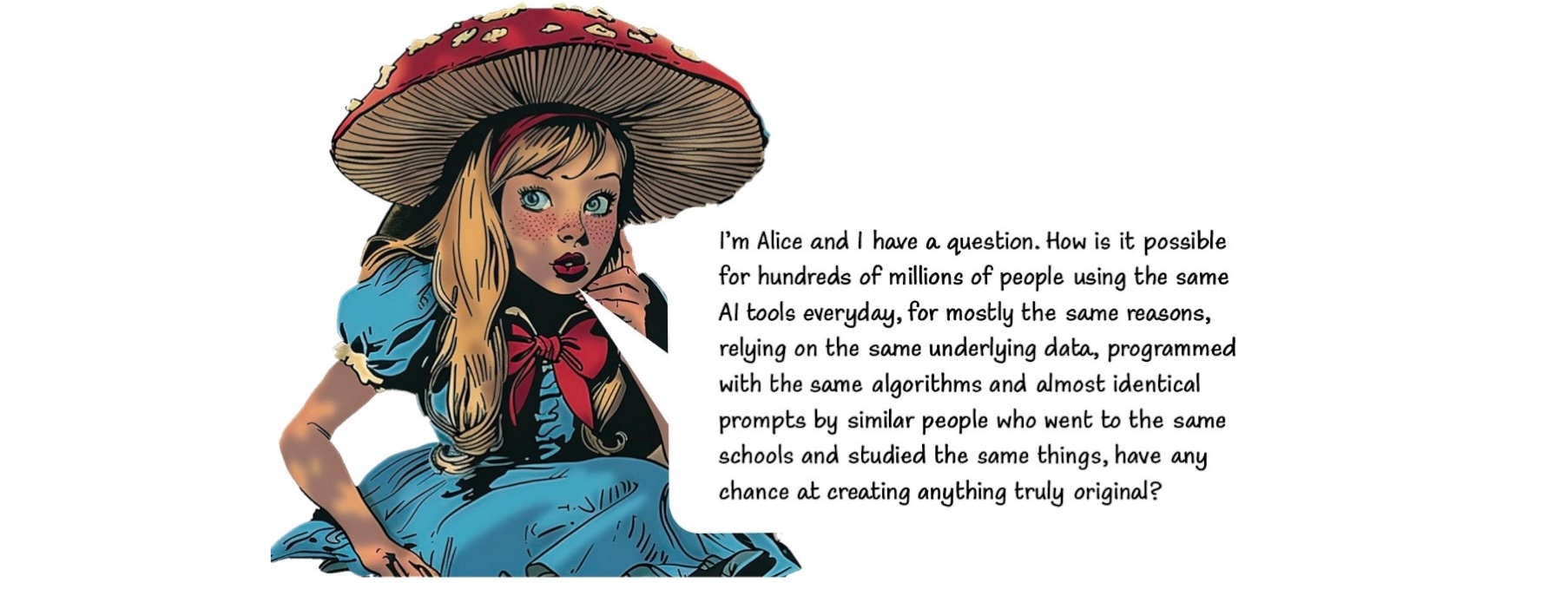

Are we codifying an Artificial Average? Literally writing the code so we can all regress to the mean?
Has anyone else noticed what’s been happening to ChatGPT4? It’s become more placid, vapid, less insightful, and is a far worse writer than 3.5 ever was. It provides incomplete responses, sells itself after every response, and hard! What’s going on? I have a theory.
GROUP THINK, ANYONE?
Convergence Over Innovation
Innovation thrives on diversity, yet the tech industry seems to be converging toward a uniform goal. The prevalence of groupthink, where similar educational and professional backgrounds shape development, may be stifling true innovation. How can we break free from this cycle to encourage a multitude of voices and ideas?
The Consulting Ecosystem
The consulting world plays a pivotal role in shaping AI strategies, yet there’s a risk of it becoming an echo chamber. With strategies often recycled rather than created, we must ask ourselves: are we consulting for confirmation or for genuine innovation?
Marketing and Risk Aversion
The tech industry’s marketing efforts often blur into an indistinct hum, with companies shying away from bold statements in favor of safe, incremental innovations. This risk-averse culture may be the very barrier preventing disruptive ideas from taking flight.
Data and Algorithm Uniformity
The backbone of AI — data and algorithms — suffers from a lack of diversity. When the industry relies on similar datasets and algorithms, the resulting solutions are at risk of becoming mere reflections of each other. How can we ensure that AI solutions are as varied as the problems they aim to solve?
A Vision for Original AI
As we stand at the crossroads of AI development, it’s time to chart a new course — one that values originality and diversity. The industry must embrace a culture that encourages risk-taking and celebrates the unique contributions of each idea. This blog post is a call to action for developers, investors, and users alike to foster an environment where AI can grow in unexpected and groundbreaking directions. Only then can we unlock the full potential of artificial intelligence.
Written by Stephen B. Klein

